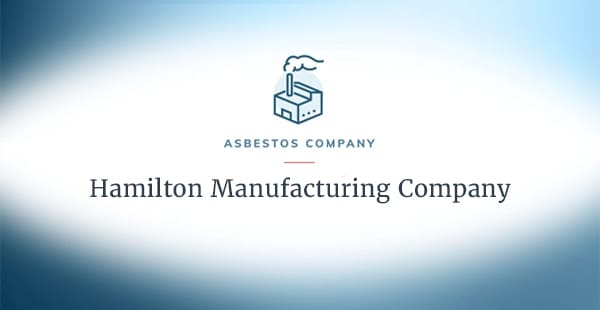01. History of Asbestos Use
Hamilton Manufacturing Company History of Asbestos Use
In 1880, James Edward Hamilton founded Hamilton Manufacturing Company (Hamilton) as a furniture manufacturing company. Over the years, it had many name changes and owners. For instance, it once operated as Hamilton Scientific and as a division under Thermo Fisher Scientific.
In 2015, Hamilton Laboratory Solutions LLC bought Hamilton Scientific. The company was renamed and currently operates as Hamilton Laboratory Solutions.
By the 1900s, Hamilton was manufacturing furniture and materials for many industries. Popular industries for its products included dentistry, steel printing and medical and scientific laboratories. In the 1980s, the company stopped selling every product line except those in the laboratory division.
For much of the 20th century, equipment and furniture produced for laboratories often contained asbestos. For instance, Hamilton has made fume hoods for laboratories for many years. Before the 1980s, companies that made these hoods frequently added asbestos for heat protection. Asbestos materials may also have been used throughout Hamilton manufacturing factories.
People may have been exposed to asbestos while manufacturing Hamilton products or by using its products in other workplaces. Asbestos exposure may lead to diseases like mesothelioma. Patients and their loved ones may be able to file lawsuits against the companies responsible for their exposure.
Resources for Mesothelioma Patients
02. Asbestos Products
Hamilton Manufacturing Company Asbestos Products
Hamilton has been associated with asbestos in multiple ways, including through affiliations with other companies. For example, the company’s ownership changed many times throughout its long history. Some companies that purchased it have since been named in lawsuits as asbestos companies. Involvement with these companies may indicate potential asbestos use by Hamilton.
Notably, the type of furniture and equipment Hamilton produced for many industries often contained asbestos. For instance, companies added asbestos to fume hoods for decades. Hamilton’s fume hoods have been popular for years, including at the height of U.S. asbestos use.
Some products manufactured by Hamilton that may have contained asbestos include:
- Children’s furniture
- Countertops
- Dental cabinetry
- Drafting furniture
- Laboratory equipment (like fume hoods)
- Medical equipment
- Radio cabinets
- Steel printer equipment
03. Occupational Exposure
Hamilton Manufacturing Company and Occupational Exposure
Hamilton manufactured different types of furniture and laboratory equipment, such as fume hoods. Many of these products were commonly made with asbestos until the 1980s.
To manufacture these products, Hamilton required high heat and may also have used asbestos for heat protection. Manufacturing facilities were often built with asbestos construction materials, like asbestos insulation.
Because of the mineral’s popularity in the manufacturing industry, many employees faced asbestos exposure risks. Some occupations at Hamilton with potential exposure risks included factory workers, carpenters and others. Workers at jobsites that used Hamilton products may have faced exposure risks too. Any amount of asbestos exposure may lead to an asbestos-related disease, such as asbestosis and asbestos cancer.
04. Asbestos Litigation
Asbestos Litigation Against Hamilton Manufacturing Company
Victims in some mesothelioma lawsuits have cited laboratory equipment as a source of asbestos exposure. This includes lab equipment made by companies that Hamilton was once affiliated with. For example, Thermo Fisher Scientific has been named as a defendant in various asbestos lawsuits.
In 2008, a mesothelioma patient’s family was awarded $7 million after his death. He had worked as a contractor for Thermo Fisher Scientific, which manufactured laboratory equipment. Thermo Fisher Scientific also owned Hamilton for 25 years.
There is an established history of asbestos use in scientific laboratory equipment. Companies similar to Hamilton have been sued over this, resulting in compensation for some victims.
Anyone who thinks they may have experienced asbestos exposure through Hamilton products can speak with a lawyer. Experienced asbestos attorneys have access to extensive asbestos company records. They can explain victims’ options based on the details of their case.








